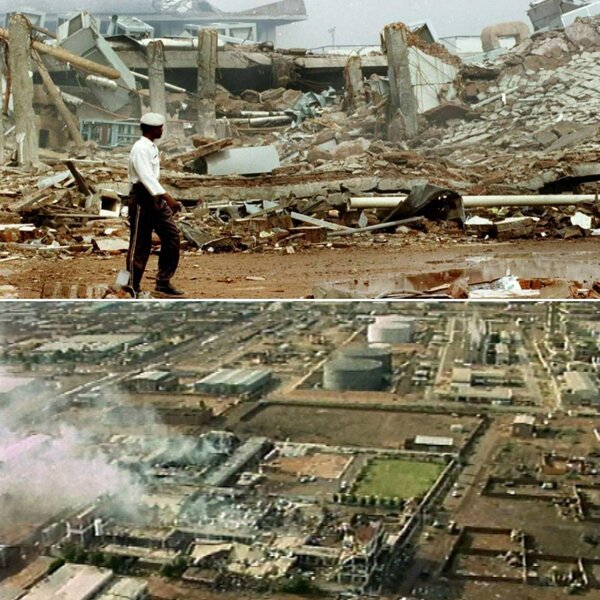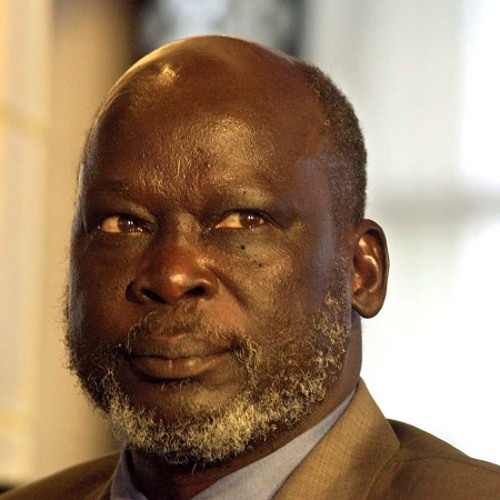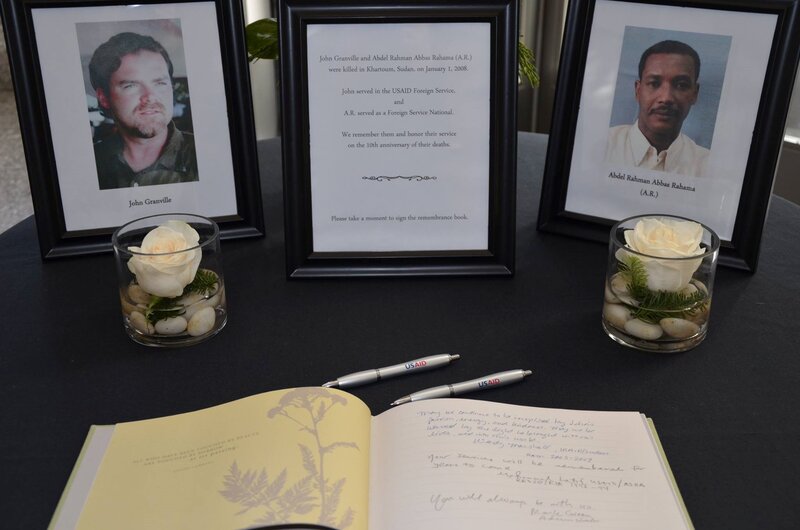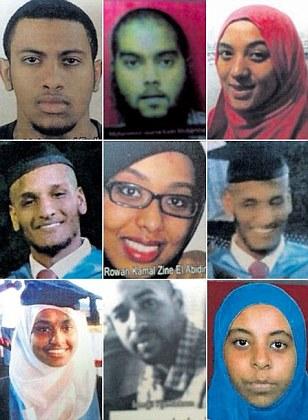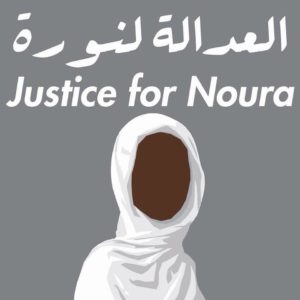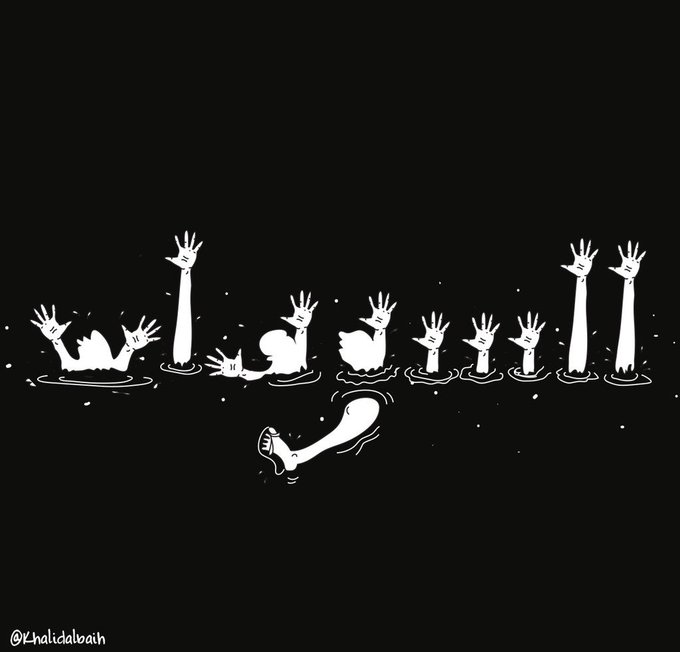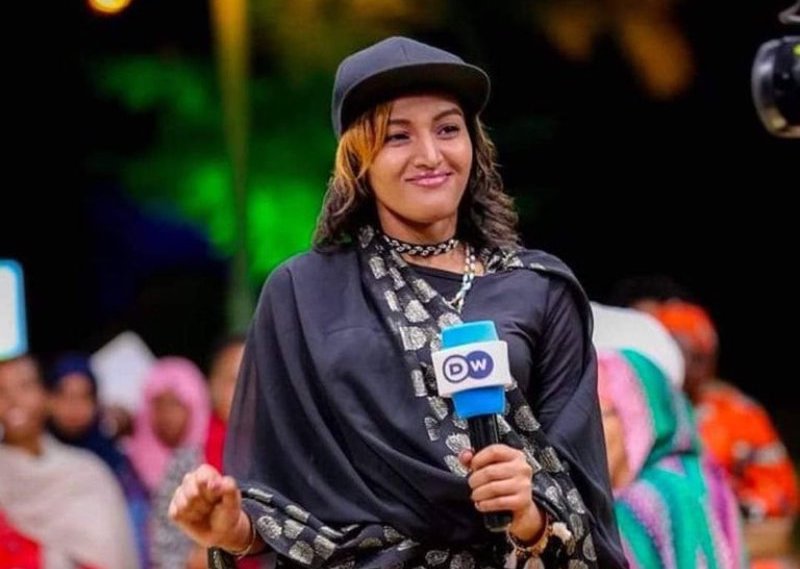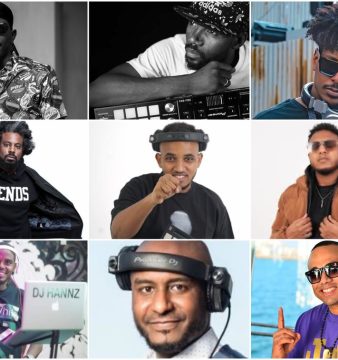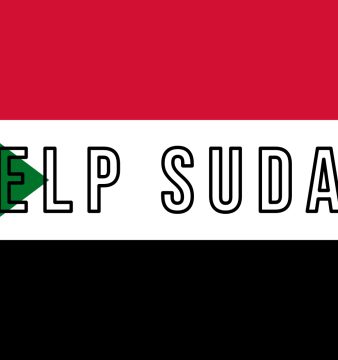Sudan’s 12 Most Tragic Events
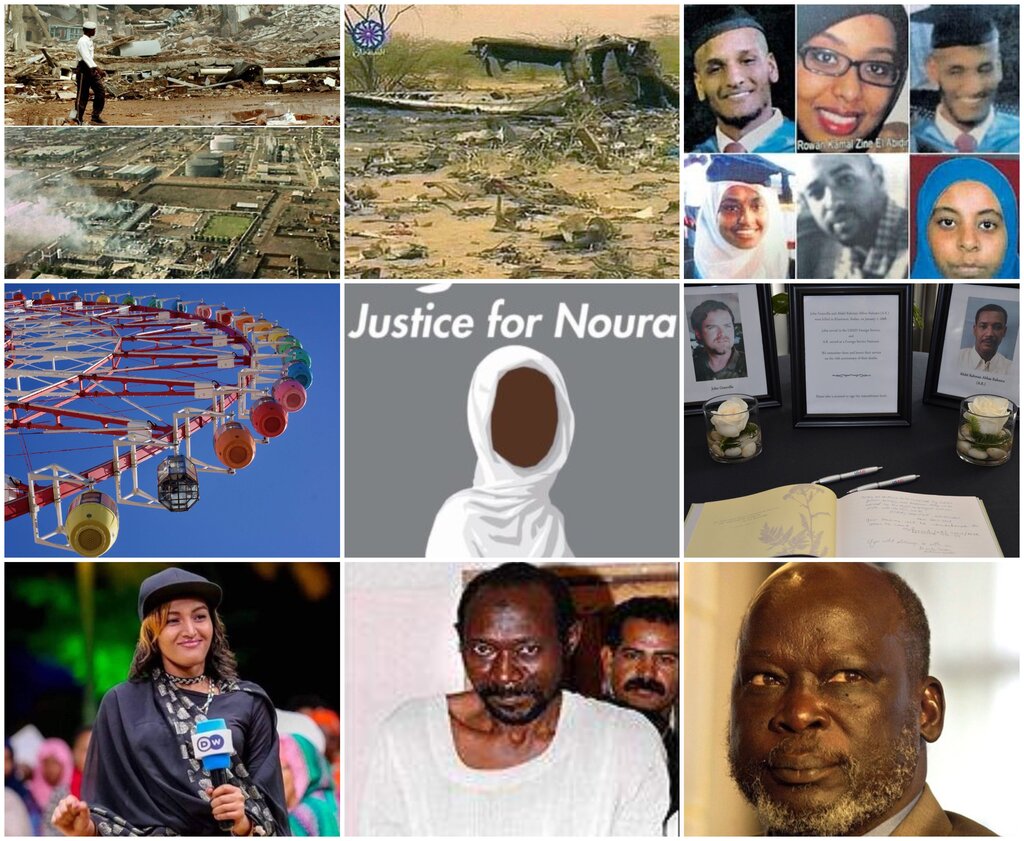
When it comes to world news, Sudan commonly makes headlines for civil conflicts, political and economic instability and crises, humanitarian crises, war crimes, and more. However, there are many times Sudan made headlines for other tragic events, crimes and cases that are specific to an individual, place or phenomenon.
Here are some of Sudan’s most tragic events:
Al Shifa Pharmaceutical Factory missile strike (1998)
In 1998, Al Shifa Pharmaceutical Factory in Kafouri, Khartoum North (Bahri) was destroyed by a missile attack launched by the US, under the presidency of Bill Clinton, killing one employee and wounding 11. The US government claimed that the factory, which produced 90% of the country’s pharmaceuticals, was used for producing VX nerve agent and other chemical weapons, and linked it to Osama bin Laden. It was constructed between 1992 and 1996 with components imported from Germany, India, Italy, Sweden, Switzerland, Thailand and the US. It officially opened on 12 July 1997 and bombed by the US on 20 August 1998. Composed of four buildings, it was the largest pharmaceutical factory in Sudan and employed over 300 workers, producing medicine both for human and veterinary use. The loss of the factory resulted in the deaths of tens of thousands from treatable diseases.
The killings of serial killer Mohammed Adam Omar Ishaak (1995 – 1999)
Mohammed Adam Omar Ishaak (1952 –20 June 2001), known as The Sana’a Ripper, was a Sudanese serial killer. A morgue assistant, Omar was convicted of killing two medical students in Yemen’s Sana’a University between 1995 – 1999 and later executed for their murders in 2001 at the age of 48-49.
In 1999, the bodies of 21 female students were found buried either on campus or in the sewage system of Sana’a University. Omar was arrested in 2000 on suspicion of killing 16 of them, whereupon he tried to commit suicide by cutting his wrists with his spectacles, but was overwhelmed. Just a day after being detained, he confessed to raping, killing and mutilating five women, citing his inability to ‘resist their beauty’ and desire to send them to Heaven as his motive. He went on to confess the murders of a total of 51 women, with additional victims in Sudan, Kuwait, Chad, Lebanon, Jordan and the Central African Republic (CAR), starting in 1975. He explained that he lured the women, who were mostly medical students, to the morgue, under the guise of helping with their studies. In there, he killed them with a blow to the head. After that, he cut off the hands and feet, dissolved the bodies in chemicals and kept the bones as mementos. He later retracted his statements, prompting various theories about the number of victims. He also stole gold from his victims.
The violent storm of 2002 (2002)
A sudden and violent sandstorm accompanied by a thunderstorm hit Khartoum on 29 September 2002, toppling a Ferris wheel and sinking a Nile River boat, killing 33 people.
Passengers were thrown off a ferris wheel in Al Mogran Family Park. At least 13 people were killed there, most of them children, according to Sudanese officials.
A Nile River boat, which was carrying more than 40 passengers, celebrating a wedding, capsized in the storm. The groom survived, but the bride drowned. At least 16 people drowned when the boat sank and more than 30 were taken to hospital. Most of the victims were doctors.
The crash of Sudan Airways Flight 139 (2003)
On 8 July 2003, a Sudan Airways passenger flight 139 crashed in Port Sudan. The Boeing 737 aircraft was operating a domestic scheduled Port Sudan–Khartoum passenger service. Some 15 minutes after takeoff, the aircraft lost power in one of its engines, which prompted the crew to return to the airport for an emergency landing. In doing so, the pilots missed the airport runway, and the airplane descended until it hit the ground, disintegrating after impact. Of the 117 people aboard, 116 died.
The plane crash was a result of a mechanical failure followed by pilot error. The pilots involved were Captain Awadh Jaber, First Officer Amir Al Nujumi, and Second Officer Walid Khair. Then-Sudanese foreign minister Mustafa Osman Ismail stated that the trade embargo imposed by the US in 1997 as a contributing factor to the accident, claiming the airline was unable to get spare parts for the maintenance of its fleet because of sanctions. The aircraft involved in the accident, in particular, had not been serviced for years. It was a Boeing 737-2J8C, c/n 21169, registered ST-AFK. Powered by two Pratt & Whitney JT8D-7 engines, it had its maiden flight on 29 August 1975, and was delivered new to Sudan Airways on 15 September 1975. At the time of the accident, the aircraft was almost 28 years old.
There were 106 passengers and 11 crew members. There were three Indians, a British, a Chinese, an Emirati, and an Ethiopian among the dead as well. A two-year-old boy, Mohammad Al Fateh Othman, was the sole survivor. He was accompanying his mother on the flight. She perished in the crash.
The death of Dr John Garang (2005)
Dr John Garang De Mabior was a Sudanese politician and revolutionary leader. From 1983 to 2005, he led the Sudan People’s Liberation Army/Movement as a commander in chief during the Second Sudanese Civil War.
In 30 July 2005, Garang died in a plane crash at the age of 60, the Ugandan presidential Mi-172 helicopter, after returning from a meeting in Rwakitura, Uganda with long-time ally President Yoweri Museveni of Uganda, which the Sudanese government did not know about and therefore, did not take the presidential plane. In fact, Garang said he was going to spend the weekend in New Cush, a small village near the Kenyan borders founded by Garang himself. To this day, neither the identity of any other participants at the meeting nor its purpose is known.
At the time, Sudan and South Sudan were one country – South Sudan seceded from Sudan in July 2011. Garang’s death, angered South Sudanese nationals, as many believed that former Sudanese President Omar Al Bashir and his government were responsible for Garang’s death, sparking violent protests throughout Sudan.
The killing of US John Granville and Abdel Rahman Abbas Rahama (2008)
US diplomat John Granville and his driver Abdel Rahman Abbas were killed by gunmen in Khartoum on 1 January 2008 as they were returning from a New Year’s Eve party. In the attack, a vehicle cut off Granville’s car and its occupants opened fire before fleeing. Abbas was immediately killed. Granville, who was hit by five bullets, died of his wounds after surgery.
Granville, 33, was from Buffalo, New York. Granville worked for the US Agency for International Development (USAID) and was the first American to be killed in Sudan since 1973, when two diplomats were slain by Palestinian militants. He was working to implement a 2005 peace agreement between Sudan’s north and south that ended more than two decades of civil war. He had worked on USAID democracy and governance programmes in Sudan for more than three years, helping distribute thousands of solar-powered radios to the now South Sudan to inform citizens of their rights and help them prepare for elections. Abbas, 39, was born in Juba, Sudan. He began his USAID career in 2004 as one of the original members of the USAID Disaster Assistance Response Team for Darfur, Sudan. He was hired as a driver for the USAID/Sudan mission in Khartoum in 2005.
Four Sudanese men were convicted of murder, possession of firearms and other charges and sentenced to death by hanging. The assailants acted out of ‘religious zeal’ and that the group was looking for a Western target during New Year’s Eve celebrations. An appeals court commuted the death sentences after the driver’s family decided to pardon the murderers. Sudanese law stipulates that if a victim’s family chooses to pardon the murderer, the person cannot be sentenced to death and the prison term cannot exceed 10 years. The three appeals court judges delivered their verdict without considering the wishes of the family of Granville.
For more information, visit sd.usembassy.gov
Sudanese youth joining ISIS (+2013)
In 2013, the Islamic State (IS), also known as the Islamic State of Iraq and Syria (ISIS), the Islamic State of Iraq and the Levant (ISIL), and by its Arabic acronym Daesh, a transnational Salafi jihadist group was established. In 2015, Sudan witnessed a growing number of young Sudanese men and women joining ISIS. Twelve students from the University of Medical Sciences and Technology (UMST), also known as Mamoun Homeida, left their studies and crossed into Turkey to become fighters for the so-called Caliphate in Syria. They were from wealthy families, holding foreign passports as citizens of the UK, the US and Canada. Throughout the years, more and more young Sudanese men and women joined IS as fighters, doctors and other healthcare personnel and even husbands and wives. Some have made a life there and never returned, others were repatriated, and some were killed serving ISIS.
The case of Noura Hussein (2018)
Noura Hussein Hammad is a Sudanese woman who was sentenced to death by hanging on 10 May 2018 for killing her husband after he raped her. At the time, she was 19 years old. Hussein’s legal team was given two weeks to appeal the sentence. In June 2018, Sudan commuted her sentence to five years’ imprisonment and financial compensation, customarily known as Diya or ‘blood money’, to the tune of about USD8,400.
She was forced into marriage at age 16; the marriage was arranged when she was 15. According to Hussein, the first rape took place when she was first married she was restrained by her husband’s family members immediately after her marriage. When he attempted to rape her again, Noura defended herself and in the ensuing struggle, stabbed her husband to death. The husband’s family declined opportunities to pardon Hussein or accept financial compensation in lieu of her execution. The case caused worldwide outrage, launching an online campaign, supporting Noura with hashtags such as #JusticeforNoura and #SaveNoura.
The drowning of 22 school children (2018)
On 15 August 2018, a boat, carrying more than 40 children on board, sank in the Nile while they were on their way to school. At least 22 children have drowned and a woman also died when the vessel went down around 750 km north of Khartoum.
The accident occurred when the boat’s engine broke down as result of heavy rains and winds in Beheir district in the Nile River state. Villagers in the region rely on wooden boats to cross the Nile. Witnesses stated that the boat had been crossing the river against the current.
Sudanese authorities then ordered the closure of schools across Khartoum amid heavy torrential rains and winds that have destroyed hundreds of homes in some provinces, including North Darfur and North Kordofan. Nearly 40 people have been killed due to heavy rains that week.
The case of Maryam Tiyrab (2022)
In July 2022, the story of Maryam Tiyrab, a 20-year-old Sudanese woman who was sentenced to death by stoning for adultery, broke out. It was the first known case in the country for almost a decade. The majority of stoning sentences, which are predominantly against women, are overturned in the high court.
She was arrested by police in the White Nile State in June 2022. Human rights campaigners such as Human Rights Watch (HRW), African Center for Justice and Peace Studies (ACJPS) and Equality Now have spoken out against the ruling. Tiyrab appealed against the decision.
On 14 December 2022, Kosti Criminal Court in the White Nile State concluded the re-trial of Tiyrab where the court found that Tiyrab was guilty of Gross Indecency under article 151 of Sudanese Penal Code, 1991 and sentenced her to six months imprisonment at Kosti prison in the White Nile state.
Sudan’s Me Too Movement (2020)
In July 2020, an anonymous story shared with MeTooSudan, an account on X (formerly Twitter) that has since gone offline after facing the threat of litigation, accused Sudanese-American hip hop artist Lil Freeny of sexual harassment. She accused him of harassment and then spreading rumors about her by telling people that she had sent him nudes. She saw this as an intention to tarnish her reputation. Other women came forward with similar accusations against Lil Freeny and his circle of friends, albeit anonymously – all Sudanese or Sudanese-American in the US where Lil Freeny is also based. Immediately after, Lil Freeny published a statement on his social media platforms, stating ‘Rape allegations are never something that should be taken lightly’ and that ‘stories [of victims] should be subject to appropriate inquiry and scrutiny’. The sexual harassment accusations against Lil Freeny triggered a social media Me Too movement where Sudanese women from around the world came forward on social media, outing their harassers, and sharing their stories of sexual harassment and sexual assault. However, none of the allegations went past social media.
The murder of Sudanese rapper Rana Bader Aldeen (2022)
Sudanese rapper and dancer Rana Bader Aldeen was found dead in an apartment in Khartoum North (Bahri) on 25 December 2022. She has been dead for approximately 10 days until she was found. She appeared to have died from blunt force trauma to the head.
The police arrested the perpetrator, the 26-year-old son of the owner of the furnished apartment, who confessed to the crime, admitting he killed Bader Aldeen during an altercation on 17 December 2022 where he hit her in the face and head with a piece of wood. He said he attacked Bader Aldeen because she insulted him with obscene words. The perpetrator sought the help of a rickshaw driver, who was also arrested, to help him dispose of the body.
Although the perpetrator has been arrested, many took to social media to mourn Bader Aldeen’s death, and using the hashtag #JusticeforRana, called on the police authority to give the perpetrator the appropriate legal sentence so that justice is served for Bader Aldeen.
What event do you remember most? What is the most tragic event? Leave a comment below!

